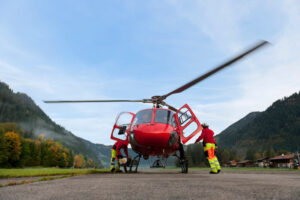Pilot training is more than reviewing what you already know
Whenever I start completing my recurrent ground school I try to have a healthy attitude about the days ahead. Pilot training is never something that I actually look forward to, but it serves a purpose and I’m usually pleasantly surprised by how much I learn (or relearn), no matter how many times I’ve been through the same school. It’s incredibly easy during training to become complacent with procedures, callouts, emergency memory items, and everything else that we know inside and out. Unfortunately, the mental decline for me usually begins about the time that it’s all completed, but completing my training once a year seems to keep me sharp enough to feel comfortable with my piloting duties.
I recently read a helicopter accident report that surprised me. According to the NTSB, a contributing factor to the accident was the pilot’s lack of recent and recurrent training. Apparently the pilot lost control of the helicopter after entering a vortex ring state, leading to a high rate of descent into the ground with a right spin.
I’m not a helicopter pilot, and I have no idea what a vortex ring state is, but I’m pretty sure if it can lead to a high rate of descent with a spin factor, pilots ought to be practicing how to get out of it. Yet the accident report said that even though the pilot had knowledge of the vortex ring state, his training records indicated that he had not received any formal recurrent vortex ring state recognition and recovery training during his entire 16 years of employment with the Virginia State Police Aviation unit.
The records also indicated that the Virginia State Police Aviation Training Manual did not include vortex ring state recognition and recovery for initial OR recurrent training and the associated maneuvers were considered to be optional. I’m thinking that if he had practiced the recognition and recovery of this vortex ring state every year in training, this accident would never have happened.
Yes, pilot training can be a pain. It can feel like a waste of time when we think we already know what we need to know. But practicing something that could kill us once a year (or even every 6 months) is actually incredibly smart. Maybe we develop a muscle memory for a recovery or the more we do a particular maneuver, the better we get at recognizing a problem before it becomes a problem. At any rate, I’m going to go to my next recurrent training with a positive frame of mind. Who knows, maybe I’ll learn something new!
RELATED CTS TRAINING










